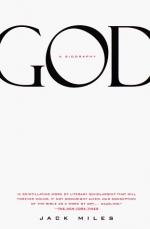
|
| Name: _________________________ | Period: ___________________ |
This quiz consists of 5 multiple choice and 5 short answer questions through Chapter 7.
Multiple Choice Questions
1. What is understood and not concealed about God?
(a) His opinion of the Book of Esther.
(b) The set of inner contradictions in God.
(c) His relationship with Ruth.
(d) His influence on the Prophets.
2. Why did the horrible destruction threatened in Deuteronomy 28 have to take place?
(a) God did not want to make a fool of himself by endlessly granting Israel stays.
(b) The Israelites deserved it.
(c) God could not stop the destruction.
(d) God falsely accused the Israelites of breaking his rules but still wanted to get revenge.
3. What does prophecy combine?
(a) Reading, religion, and reason.
(b) Meaning, movement, and morals.
(c) Preaching, politics, and poetry.
(d) Teaching, tutoring, and tilling.
4. How does God come to understand that he wants to limit and channel the gift of procreation?
(a) Through his thoughts.
(b) Through man.
(c) After creating the earth.
(d) After Adam takes a bite from the apple.
5. How will prophecy be examined in this book?
(a) As the self-characterization of God in a non-narrative form.
(b) As an explanation of the origins of God.
(c) As the historical evidence of God in narrative form.
(d) As the aspects of God in narrative form.
Short Answer Questions
1. How does God tell Moses to clear Canaan of its natives?
2. How is God's interaction with Moses different from that with Abraham?
3. What does God become when Pharaoh legislates that all Israelite boys be killed at birth?
4. Why do the Christians move the prophets from the middle to the end?
5. Many technical studies deal with how the God of Israel arose as a fusion of Semitic deities, but what do they fail to ask?
|
This section contains 407 words (approx. 2 pages at 300 words per page) |

|




